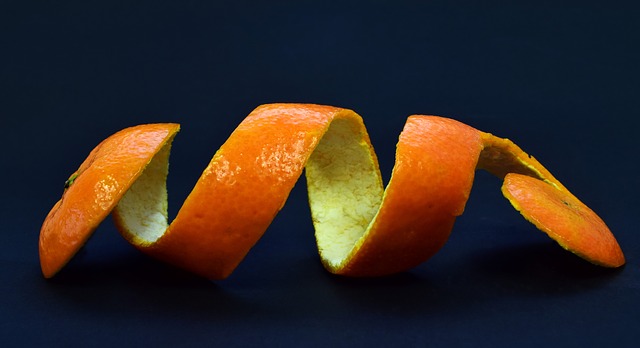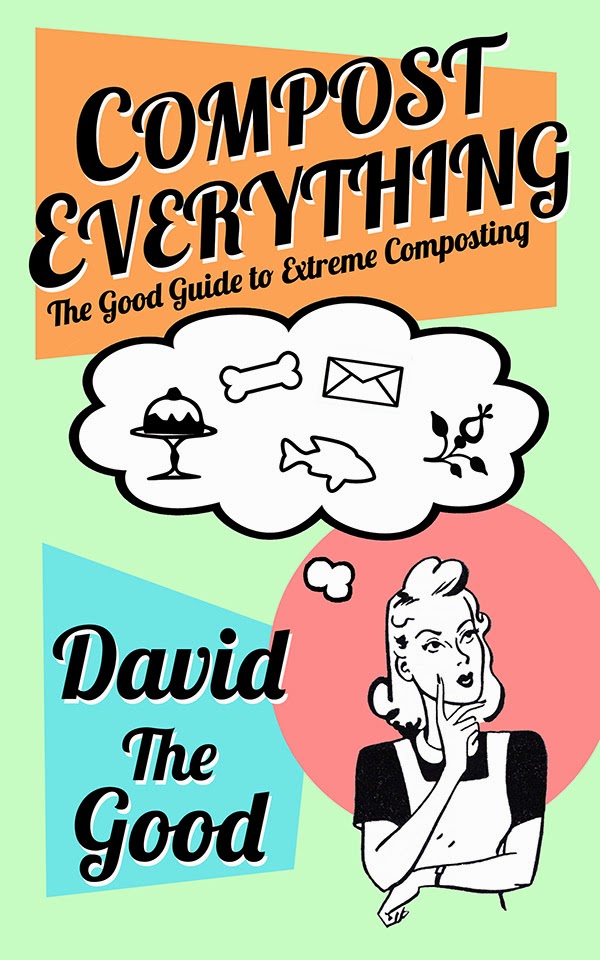Compost everything, orange peel edition:
“Treuer initially set out to locate the large placard that marked the plot—and failed.
‘It’s a huge sign, bright yellow lettering. We should have been able to see it,’ Treuer says. After wandering around for half an hour with no luck, he consulted Janzen, who gave him more detailed instructions on how to find the plot.
When he returned a week later and confirmed he was in the right place, Treuer was floored. Compared to the adjacent barren former pastureland, the site of the food waste deposit was ‘like night and day.’
‘It was just hard to believe that the only difference between the two areas was a bunch of orange peels. They look like completely different ecosystems,’ he explains.
The area was so thick with vegetation he still could not find the sign.
Treuer and a team of researchers from Princeton University studied the site over the course of the following three years.
The results, published in the journal Restoration Ecology, highlight just how completely the discarded fruit parts assisted the area’s turnaround.
The ecologists measured various qualities of the site against an area of former pastureland immediately across the access road used to dump the orange peels two decades prior. Compared to the adjacent plot, which was dominated by a single species of tree, the site of the orange peel deposit featured two dozen species of vegetation, most thriving.”
I’ve seen massive changes in an area after dropping lots of tree mulch. Struggling trees suddenly found their stride. Wildflowers and mushrooms appeared. Sweet potatoes exploded in productivity.
Feed the soil, and the soil takes care of your plants. That’s why I argue in Compost Everything: The Good Guide to Extreme Composting that making lists of rules of things you “shouldn’t compost” and chucking good stuff like bones, wood, etc., is foolish.
Nature breaks down organic material wonderfully. She’s a well-designed machine. Work with instead of against her and good things will come your way.
If something as simple as orange peels can restore lousy land, imagine what would happen if you added in a wide range of compostable material?
Big changes occur, even when you start small. Compost everything!
David The Good is a Grow Network Change Maker, a gardening expert, and the author of five books you can find on Amazon: Compost Everything: The Good Guide to Extreme Composting, Grow or Die: The Good Guide to Survival Gardening, Totally Crazy Easy Florida Gardening, Create Your Own Florida Food Forest, and Push the Zone: The Good Guide to Growing Tropical Plants Beyond the Tropics. Find fresh gardening inspiration at his website TheSurvivalGardener.com and be sure to follow his popular YouTube channel.










COMMENTS(4)
I once tried collecting food waste from the school cafeteria. All was well for about a week. Then someone from higher up said it violated some sort of safety regulation. They said I couldn’t take any more unless it was first pasteurized to kill any bacteria. I don’t have access to the kitchen, nor time to cook all the slop, so we went back to just throwing the stuff in a landfill. Such a terrible, inefficient waste.
Scott– I’ve come up against similar issues. There are product out there that basically half-incinerate the food (and compostable plates etc) creating a brown compost-like substance that is completely sterile. But, the best solution I”ve seen is through a local group called Reunity Resources. Check them out here: http://www.reunityresources.com/ Call them up and ask how they’ve gotten food waste composting in every school in our district!
I’ll give it a look. Thanks!!!
“Though the problems of the world are increasingly complex,
the solutions remain embarrassingly simple.”
― Bill Mollison